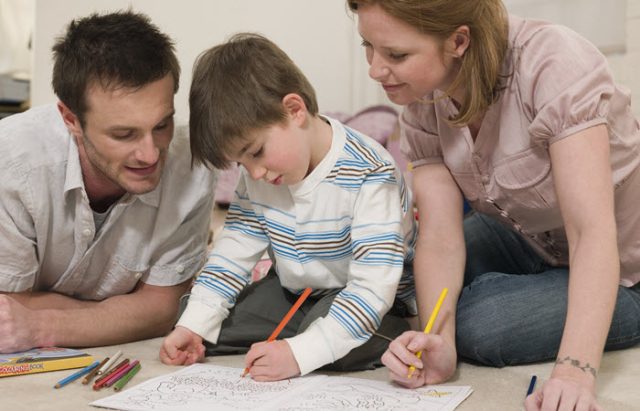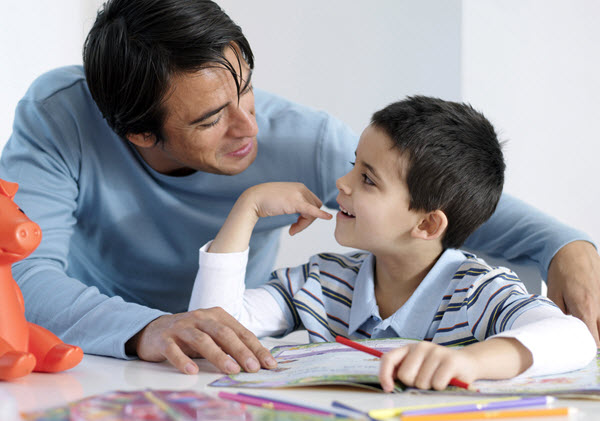Parent Child Interaction Therapy in Developing Parent-Child Relationship

Raising a child is one of the most important aspects of a parent’s life. Although the road can be tough, it is quite rewarding to see your child grow up as a wonderful person. The bond of a child with the parents start since birth as the child is dependent on the parent for every need.
Parents have a big responsibility to care for their children from birth to maturity.
The key to best raise a child is through social interactions. Children learn nearly all things in their youth from their parents and the environment they get at home. They start to interact and play with other kids their age when they reach 3 or 4 years of age.
Parents are the first teachers of every child.
This is why the relationship between them should always be positive. Children learn many things while interacting with parents, such as social skills, sharing, respecting and obeying the elders, and helping other people.
During their interactions, children learn to develop communication skills and motor skills. In an ideal world, nearly every parent wishes that their child not only behave in an excellent manner, but be a quick learner and perform well in school.
But, unfortunately, there are times when the relationship between a parent and a child is not always on good terms.
Even if parents are busy with their work routine, they have to take the time to address their children’s problems.

The Parent Child interaction Therapy
There are certain techniques and sessions that help counsel both the parents and child. One such purposeful technique is Parent Child interaction Therapy or PCIT. It is a short-term behavior-based family therapy that may improve the relationships between parents and children.
PCIT is best for children who have disruptive behaviors and those who easily lose their concentration either while studying or interacting.
It was developed by Sheila Eyberg in the 1970s who specialized in designing techniques for children’s behavior and play therapy. She further enhanced the two-way behavioral approach given by Constance Hanf. Today, PCIT is considered as the most effective and goal-oriented therapy to improve parent and child interactions.
The Two Stages of PCIT
PCIT involves two stages — relationship enhancement and discipline and compliance.
The therapist will first speak with the parents and let them know about the process of the two stages. The therapist will then use a one-way mirror or a live video display to see the parents interact and play with the children. The parents will have a listening device so that the therapist can give live coaching. The behavior of the parent and child are tracked and graphed to show the progress.
The relationship enhancement stage teaches the parent to minimize any negative feelings within the relationship. This stage also encourages the parents to develop new communication skills and learn how to boost their children’s confidence.
The discipline and compliance stage, on the other hand, deals with improving the conduct of the kid. It addresses the symptoms to prevent any negative behavior.
PCIT approach is ideal for children between the ages of 2 to 7. It helps the children to learn and adapt good behavior.

The relationship enhancement stage is also called child directed interaction. It helps improve the shared bond between the parent and the child. The child has the option to choose the toy or activity that he/she will use and the parent will play along using the instructions given to them by the therapist.
The skills are denoted by the word ‘pride’ where:
- Praise- The child should be appreciated for good behavior.
- Reflection- The words of the child are repeated and discussed by the parents which encourages communication.
- Imitation- The parents teach their child by mimicking and showing approval of what the child was doing.
- Description- The parents describe what the child is doing so that the child can learn new words and build his/her vocabulary.
- Enjoyment- The parents show enthusiasm and happiness on the activities and playfulness of the child.
What Happens In A Session
During the session, the parents need to remember to ignore any negative behavior or remark which is not serious. The parents also need to avoid using negative or sarcastic words when interacting with the child. Once the parents and child are comfortable in the first stage, then they progress to the second stage.
In the discipline and compliance stage, the parents give easy-to-understand instructions to the child with a clear message if the child ignores or disobeys the instruction. If the child complies with the message, then the parents need to use words such as ‘thank you.’
The PCIT approach has the potential to address many behavioral symptoms, such as short temper, disobedience, aggression, and defiance.
Benefits of PCIT
PCIT is quite helpful in:
- Building better and positive interactions between parent and child
- Developing useful strategies to help with the negative behavior of the child
- Reducing the likelihood of bad habits that the child may grasp such as verbal and physical abuse
- Reducing the negative behavior of the child such as anger, aggression, and defiance
- Helping the child to interact and communicate within the family easily
The children who take part in PCIT sessions may develop more self-esteem, show less anger and frustration, possess better social and interpersonal skills, feel safe, and communicate effectively. Parents also take much positive influence from PCIT sessions as they learn about the different behaviors of their child.
The sessions are a weekly event. Mostly, a family may take 14 to 20 sessions until the restoration of the strong bond between the parent and child happens. PCIT started with treatment of only disruptive behavior of children, but it gradually expanded. Now, this therapy is widely used to treat certain disorders which include autism, selective mutism, trauma, anxiety, and abusive parents.
See Also: Five Things I Learned From Working With Autistic Teens




